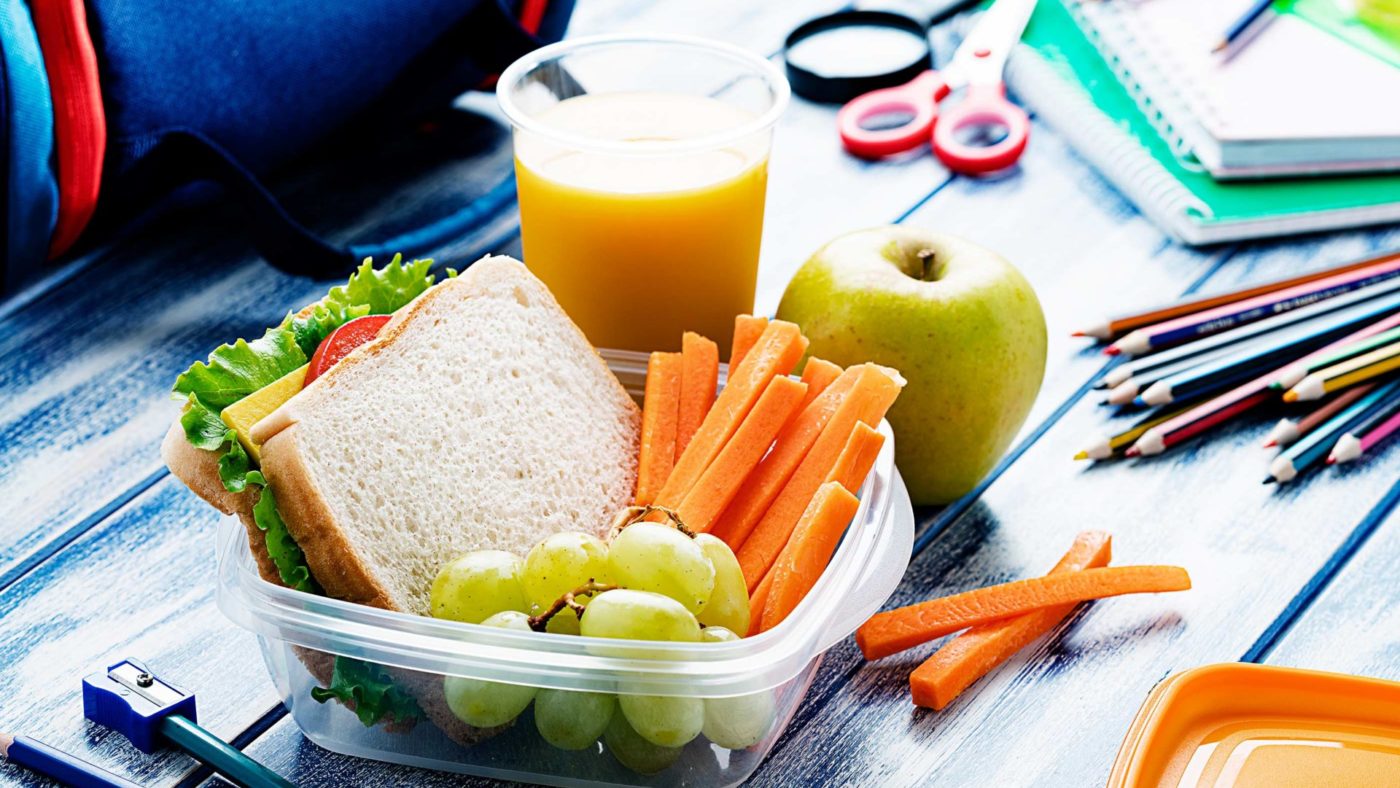Not since Fyre Festival have images of pitiful meals whipped up such a furore. But the pictures of food parcels for children eligible for free school meals plastered across social media and shared thousands of times on Tuesday certainly won’t have elicited the same schadenfreude as the “$12,000” cheese sandwich.
The initial image, posted by a Twitter account belonging to a mother called RoadsideMum, showed a loaf of bread, two potatoes, a tin of beans cheese slices, a bag of pasta, three yoghurts, two carrots, three apples, two slices of malt loaf and a single tomato. Anyone could see that this does not amount, as was claimed in the tweet, to £30 worth of food.
To be clear: there is apparent discrepancy over the image and what it purports to display. According to a spokesperson at Chartwells, the caterer now subject to public opprobrium, this is five days of free school lunches and the charge for food, packing and distribution was £10.50 not £30 as the post suggested. Unfortunately for the company, this will probably be viewed as splitting hairs.
The obvious question in all this is: why bother to contract out to a private food provider? Has the government learnt nothing of the dangers of hastily-approved public procurement over the course of this crisis? Billions were spent in 2020 in an effort to swiftly constrain and mitigate Covid-19. But it now faces accusations that standards slipped, normal competitive tendering processes were suspended, regard for value abandoned.
We don’t yet know what operational issues may have arisen that could have led to such meagre parcels being distributed, but the situation has handed ammunition to those inherently sceptical of government procurement as a proxy for crony capitalism. Within hours of the initial post came articles in the Guardian and elsewhere cross-examining Compass Group (of which Chartwells is a subsidiary) and its CEO Dominic Blackmore.
It seems more likely that the debacle stems from the emergency nature of the government’s approach – and the impact it may have on its commitment to value for money and efficacy – than the difference in pay between Blackmore and the average dinner lady. As for the operational shortcomings of the world’s largest catering company, this feels like looking through the wrong end of the telescope.
Better, surely, to ask why packages rather than vouchers, or cash, were parcelled out. Rather than tempt fate weaving a complex web of contracts, deliverers and government guidance, why not hand parents cash to feed their children? Universal Credit was introduced to streamline the benefits system; can it not be deployed in such a way as to mitigate the need for free school meals? At the very least we could reduce the five-week wait: in an age when we can instantaneously pay bills there is little excuse for delays in receiving benefits to which people are entitled.
Marcus Rashford’s Child Food Poverty Taskforce has at its core an admirable goal. With the Joseph Rowntree Foundation this week flagging the worsening financial position of many poorer people, not to mention the grim state of the UK economy, we can expect to hear much more about food poverty, or fuel poverty, or energy poverty, or transport poverty. But what this truly indicates is a welfare system that ought to be fixed at source.
Government ministers – including Boris Johnson – have been quick to blast the meals as unacceptable and urge caterers to up their game. Vicky Ford attempted to justify the decision to provide parcels rather than vouchers or cash, suggesting that it “helps keep them in touch with families,” which reeks of paternalism.
In 2020 we witnessed the most dramatic expansion of state power since the Second World War. Must we begin 2021 with a reminder that the government doesn’t trust parents to feed their offspring? In what world do overbearing public sector busybodies know better than parents how their child should eat?
And, of course, it’s now beginning in the womb: last year the National Institute for Health and Care Excellence (Nice) suggested we start recording expectant mothers’ alcohol consumption, regardless of whether they consent. The mother’s right to privacy would come second to the health of her unborn foetus in this micro-managed dystopia.
Then comes the fixation with breastfeeding, co-sleeping, one nanny statist after another “advising” on family life in the name of safeguarding until eventually we wake up one day and realise we’re not making any choices for our loved ones independently. It doesn’t take a community to raise a child, as one Public Health England official once wrote, because parents are capable of acting in their best interest.
This isn’t a flippant attempt to dismiss the children who do, regrettably, fall through the cracks, but it’s hard to believe the vast majority of parents wouldn’t stretch the £15 provision (per eligible child per week) further.
Ultimately, the Government will bend to the will of a febrile public, as it did when Rashford first made a name for himself off the football pitch back in October. The national voucher scheme will reopen on Monday – papering over the cracks until the next row erupts.
Click here to subscribe to our daily briefing – the best pieces from CapX and across the web.
CapX depends on the generosity of its readers. If you value what we do, please consider making a donation.


